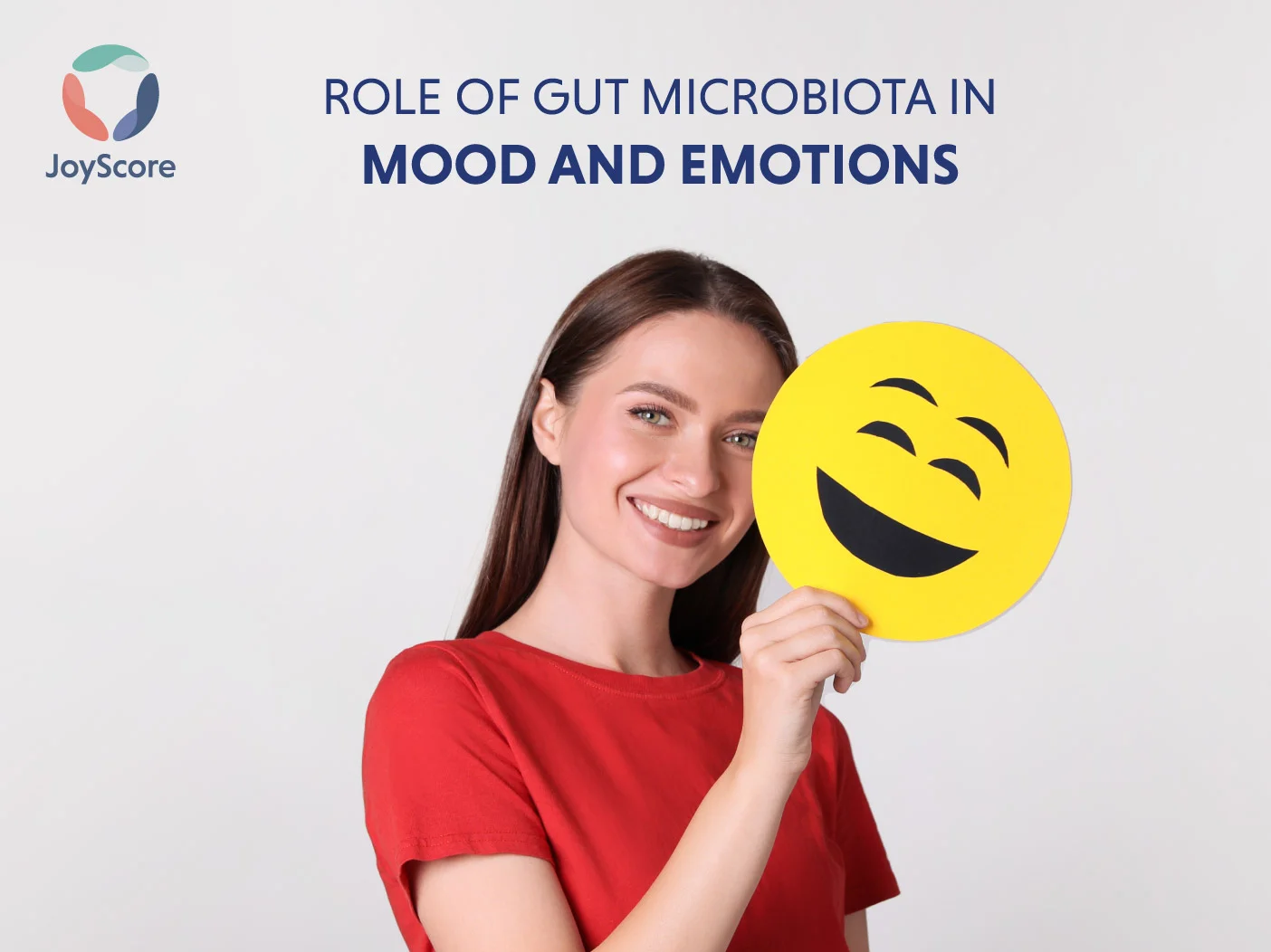The human gut colonizes a vast population of microbes, such as bacteria, that controls and enhances almost all of the body functions. The key functions related to your gut microbiota are metabolism, immune system regulation and protection against pathogen invasion.
An alteration in composition of gut microbiota is linked to a number of intestinal conditions like cancer, obesity and bowel disorders. Other than digestive tract, your mental health will also be influenced and can result in psychological problems like, depression, anxiety, brain fog, or stress. This connection between the gut and brain is possible due to the brain-gut microbiota axis. By definition, brain-gut microbiota axis is the bidirectional communication linking emotional and cognitive centers of the brain with peripheral intestinal functions, through the vagus nerve.
The gut is also referred to as a “second brain” as it produces many of the same neurotransmitters as the brain does. These are serotonin, dopamine and gamma-aminobutyric acid, all of which help regulate mood.
Hence, you must consider the factors affecting the microbiota, i.e. infection, mode of birth delivery, use of antibiotics, dietary practices, environmental stressors and host genetics. We need to take the relevant steps to prevent dysbiosis (imbalance) of the gut microbiota composition. Understanding the brain-gut microbiota axis will also help us gain success in the field of investigation and treatment of psychiatric, neurodegenerative and neuro-developmental age-related disorders.
HOW GUT MICROBIOTA AFFECTS THE BRAIN FUNCTIONING
Reduced number of gut microbiota is responsible for increased intestinal permeability. This will further lead to detrimental effects on the host immune system, which have been demonstrated in diseases such as some psychiatric disorders. These mental disorders caused due to dysbiosis of gut microbiota are depression, anxiety, autism, Alziemer’s disease, schizophrenia and Parkinson’s disease.
- ANXIETY DISORDER
Anxiety is the state of feeling worry or fear, especially about the future, and will be felt in our body as well as mind. It is a normal reaction to stress which can be induced by chronic gastrointestinal disorders like irritable bowel syndrome(IBS). Hence, improvement in gut health can help with anxiety symptoms. A healthy gut influences the production of chemical messengers like serotonin i.e. happy hormone and subside your symptoms.
- DEPRESSION
Depression is a chronic feeling of sadness, emptiness or inability to feel joyful even in happy situations. There are around thirteen types of bacteria that are known to be involved in metabolism of molecules including glutamate and butyrate. These molecules are primarily associated with the symptoms of depression. Therefore, individuals with higher symptoms of depression are less abundant in these related bacteria.
- AUTISM
Autism is a lifelong developmental disorder affecting 1 in 100 children globally. These children are mostly found suffering with inappropriate gastrointestinal disorders like stomach cramps, bloating, diarrhea and constipation. Such a behavior is suggestive of an atypical microbiome profile. Therefore, as per many studies modification of gut microbiota through antibiotics and other ways, can bring improvement in behavioral patterns of autistic children.
- ALZHEIMER’S DISEASE
Alzheimer’s is a progressive disease that destroys the memory and leads to malfunctioning of other mental processes. Studies have found a relationship between altered gut microbiota and epigenetic changes in neural tissue in the hippocampus, the area affected in Alzheimer’s. Methods like adapting a personalized diet or fecal matter transplant can therefore diminish the inflammation and treat brain disorders.
- SCHIZOPHRENIA
Schizophrenia is another serious medical condition characterized by symptoms such as hallucinations, an abnormal sense of reality and disordered thinking. It is a life-long disorder and can affect one’s ability to function. Studies have shown very specific changes in the stool samples of these patients. Hence, therapies and select medications have to be accompanied with fecal transplants to change the microbial genome of the infected individual.
- PARKINSON’S DISEASE
As per studies, the degenerative processes of Parkinson’s disease may originate in the gut rather than brain. The disease later on spreads to the central nervous system through the brain-gut axis. Therefore, for those living with the problem, it is important to consider their gastrointestinal symptoms. This will help you improve the treatment of these particular patients both now and in the future.
METHODS TO IMPROVE MENTAL HEALTH BY ENHANCING THE GUT MICROBIOTA
The key to improving your mental health is to know the types of foods that can boost your gut health. We have listed here some foods that will help.
- FIBER
Eating fiber helps in reducing inflammation and oxidative stress by supporting the gut microbiota. This will eventually improve your overall mood and memory. Some foods rich in fiber are beans and legumes, fruits and vegetables, oats, whole grain foods, nuts and seeds.
- PROBIOTICS
Probiotics are the live microorganisms similar to the one’s residing in your gut. The probiotic rich foods are extremely essential to support a healthy gut, but are good for our brain too. Some researchers have found that probiotics may help boost our mood and cognitive functions and lower stress and anxiety. Solving flares of gastrointestinal issues will also lower the risk of anxiety or depression as they are also the triggering problems.
Certain good sources of probiotics are yogurt, buttermilk, cottage cheese, sauerkraut, sourdough bread, miso, kimchi and kefir.
- LEAN PROTEINS
Lean proteins are low in fat content and lend more energy. Thus, you are able to think properly and react quickly. Some good sources of protein are chicken, meat, fish eggs, soybeans, nuts and seeds. However, fish like salmon are also rich in omega-3 fatty acids, which is significant in the functioning of the brain and nervous system.
- AVOID PROCESSED AND SUGARY SNACKS
Processed snack foods like potato chips can impair your ability to concentrate. Similarly, sugar-filled snacks like candy and soft drinks also lead to ups and downs in energy levels, not letting your brain function consistently. On the contrary, opt for healthy snacking such as fruits, nuts, boiled eggs, baked potatoes and popcorns.
- STAY HYDRATED

Unfortunately, water is often overlooked when it comes to taking care of our mental health. As per doctors, around 6-8 glasses of water is recommended to stay calm and avoid mental problems like depression and anxiety.
CONCLUSION
A healthy diet is one way to improve and maintain the gut microbiota. The gut regulates the functioning of your mind so it’s important to eat healthy. Staying physically active and spending time in nature are great ways to stay healthy too!
Download the JOYSCORE APP to live a life full of happiness and health.
Download on the Appstore
Get it on Google Play



